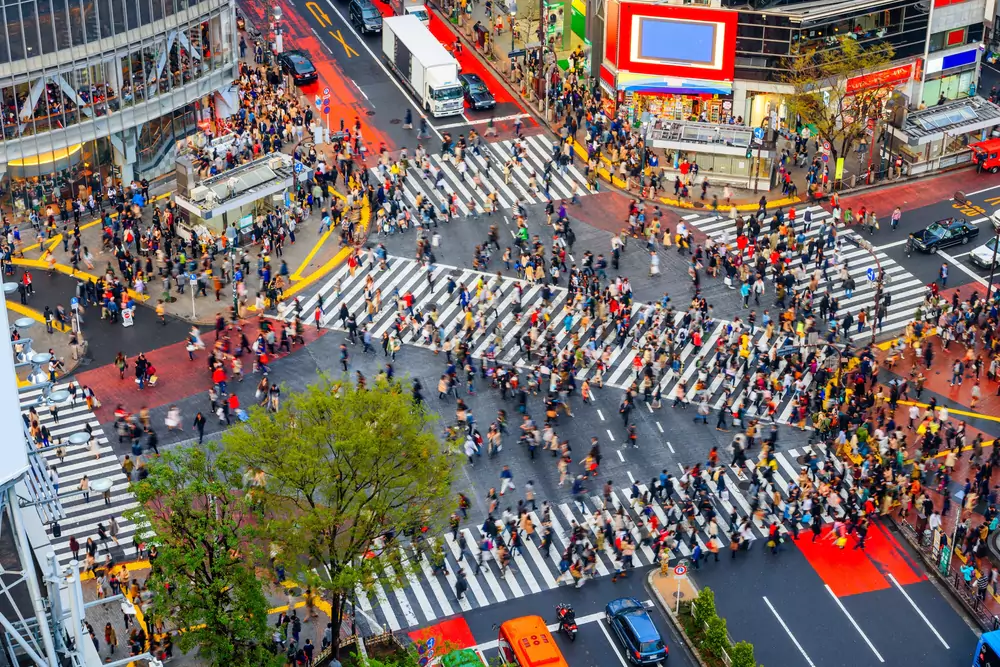Weak yen and strong demand boost Japan’s real estate momentum
From Niseko’s lifestyle appeal to wider resort growth, investors turn to Japan as a long-term safe haven

Japan’s property market continues to stand out as a destination for international capital, underpinned by its political stability, advanced infrastructure, and natural appeal. Even in the face of global economic uncertainty, inflows remain strong, as a weak yen and resilient demand sustain confidence. According to Real Assets IPE, Japan drew record levels of real estate investment inflows in recent years, positioning the country as one of the safest bets for long-term value.
Niseko: From ski resort to lifestyle destination
One region at the heart of this momentum is Niseko, the Hokkaido resort town that has evolved from a seasonal ski retreat into a year-round lifestyle hub. Its appeal, however, is not a sudden phenomenon.
“Niseko has weathered the Lehman Shock, the tsunami, and COVID-19—overcoming countless major economic waves,” said Minoru Okubo, Representative Director of ResortPropertyJapan Co., Ltd., and a member of the PropertyGuru Asia Property Awards (Japan) Judging Panel. “Its greatest appeal lies in its majestic nature, filled with natural powder snow not found elsewhere, which inspires awe and provides healing. This is why investment continues to this day.”
Okubo, who has lived in Niseko for nearly three decades, believes the region’s strength lies in its ability to attract not only tourists but permanent residents. “I myself have been captivated by Niseko’s charm, having moved here nearly 30 years ago, and I see more and more people settling permanently around me. Moreover, summer in Niseko is wonderfully refreshing, and enjoying fresh vegetables and fruits is another hidden charm. The reason investment continues is that more people are spending time in Niseko not just for travel or vacations, but as part of their lifestyle.”
This lifestyle-driven appeal has made Niseko a model for other Japanese resort areas. Nikkei Asia reported that local authorities are already working to expand the region’s identity beyond winter sports, positioning it as an attractive destination year-round.
Japan’s broader real estate resilience
Across Japan, similar trends are evident. Based on The South China Morning Post, China’s property slump is dampening sentiment in Hong Kong, which have been pushing investors t increasingly look to Japan, aided by its weak yen. Meanwhile, Japan Times noted that the country is seeing a surge in wealthy migrants, particularly millionaires, who view Japan’s cultural richness and stability as a foundation for long-term settlement.
“Amid a weak yen and global uncertainty, Japan’s real estate market is increasingly seen as an attractive long-term investment destination,” said Koji Tsutsui, Principal of Koji Tsutsui Architect & Associates, also a judge of the PropertyGuru Asia Property Awards (Japan). “Political and social stability, advanced infrastructure, and the country’s natural and cultural appeal provide a strong foundation for sustaining property values.”
Tsutsui points to Niseko’s international reputation as an example of how location, culture, and architecture intertwine. “Niseko is a prime example. Known worldwide for its snow quality and international brand, the region has grown from a seasonal ski resort into a year-round destination, driving both tourism demand and asset appreciation. Similar trends in areas like Karuizawa and Okinawa highlight the wider potential of Japan’s resort and residential markets.”
Architecture as cultural identity and investment strategy
What sets Japan apart, Tsutsui emphasises, is how architecture is increasingly used as a tool for resilience and identity.
“A growing trend in real estate is the integration of traditional architecture with modern technology, creating designs that harmonise with nature while remaining adaptable,” he explained. “This balance strengthens cultural identity, builds community resilience, and adds lasting value. The essence lies in aligning economic goals with architectural vision. For investors, it ensures steady growth; for communities, it fosters sustainable futures. Most importantly, architecture itself can connect people, shape culture, and unlock the full potential of Japan’s real estate.”
This philosophy reflects broader currents in Japan’s property landscape. Asahi Shimbun revealed that communities are increasingly prioritising sustainable development, blending lifestyle amenities with respect for natural settings. These themes are now echoed not only in investment strategies but also in recognition platforms such as the PropertyGuru Asia Property Awards.
Recognising excellence: 2024 PropertyGuru Asia Property Awards (Japan)
The 2024 edition of the PropertyGuru Asia Property Awards (Japan) highlighted exactly these qualities—projects that go beyond financial value, embedding cultural identity, architectural excellence, and lifestyle integration.
- Best Property Management Portfolio: H2 Life, part of H2 Group KK
- Best Resort Housing Development: Kisin by Yoichi Dreams
- Best Boutique Resort Housing Development: Grand Tsuru Niseko by Niseko Woodlands Limited
- Best Nature Integrated Development: Kisin by Yoichi Dreams
- Top Luxury Private Villa (Greater Niseko): Alba by Noforma Design Studio
- Top Luxury Private Villa (Greater Niseko): Grand Tsuru Niseko by ABD Architecture LLC
- Best Resort Housing Architectural Design: Kisin by Yoichi Dreams
The winners reflect the very principles voiced by Okubo and Tsutsui—anchoring real estate in nature, lifestyle, and cultural identity while ensuring architectural and investment resilience. Projects like Kisin by Yoichi Dreams, which won across multiple categories, exemplify how integrated design and community appeal can set new benchmarks in resort housing.
From investment flows to community futures
These recognitions come at a time when Japan is not only attracting global capital but also reshaping the relationship between investors, residents, and destinations. Real Estate Asia found that affluent buyers from Singapore and elsewhere in Asia are diversifying into Japan, alongside established markets in London and Australia. The steady flow underscores Japan’s positioning as both a safe haven and a culturally rich environment for living and investment.
The broader implication is that Japan’s property story is no longer confined to its metropolitan centres like Tokyo or Osaka. Regional gems such as Niseko are increasingly being valued not just for their tourism pull but as long-term lifestyle destinations, supported by thoughtful architecture and resilient design.
For Okubo, it remains personal as much as professional: “Investment continues because more people are spending time in Niseko not just for travel or vacations, but as part of their lifestyle.”
And for Tsutsui, the architectural vision provides the foundation: “Architecture itself can connect people, shape culture, and unlock the full potential of Japan’s real estate.”
Together, these perspectives capture a market that is weathering uncertainty with resilience, drawing strength from its nature, culture, and design—and celebrating projects that embody these values through platforms like the PropertyGuru Asia Property Awards.
This article was originally published on asiapropertyawards.com.
Recommended
ARES Whitepaper Volume 4: Powering communities – The catalysts of urban evolution
Fresh perspectives on sustainability, lifestyle, and design shaping the future of real estate
ARES White Paper Volume 3: The era of adaptive reinvention
Pioneering sustainable and innovative practices in urban development
ARES White Paper Volume 2: Unravelling the power of data revolution in real estate
Insights on proptech, smart cities, and sustainable development
ARES Digital White Paper Volume 1: The fundamentals of responsible building
Green and climate heroes join forces to discuss how Asia Pacific can weather the current environmental crises and the looming effects of climate change







